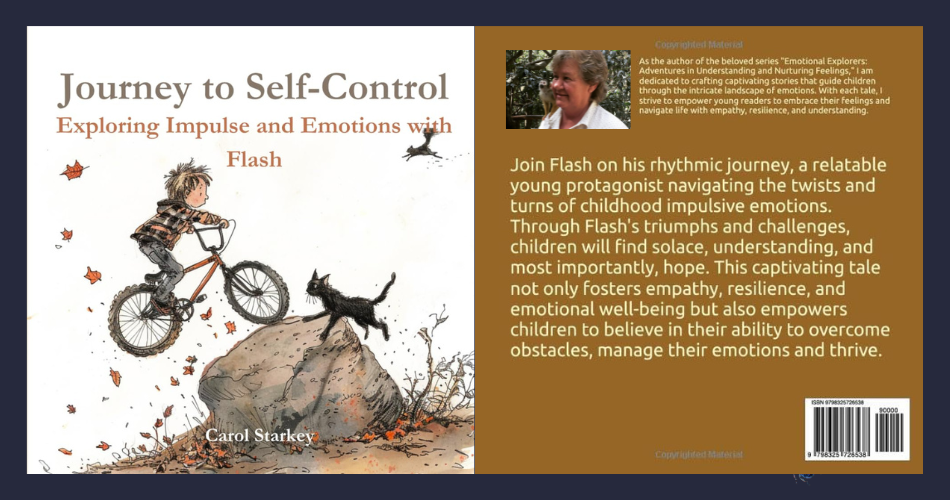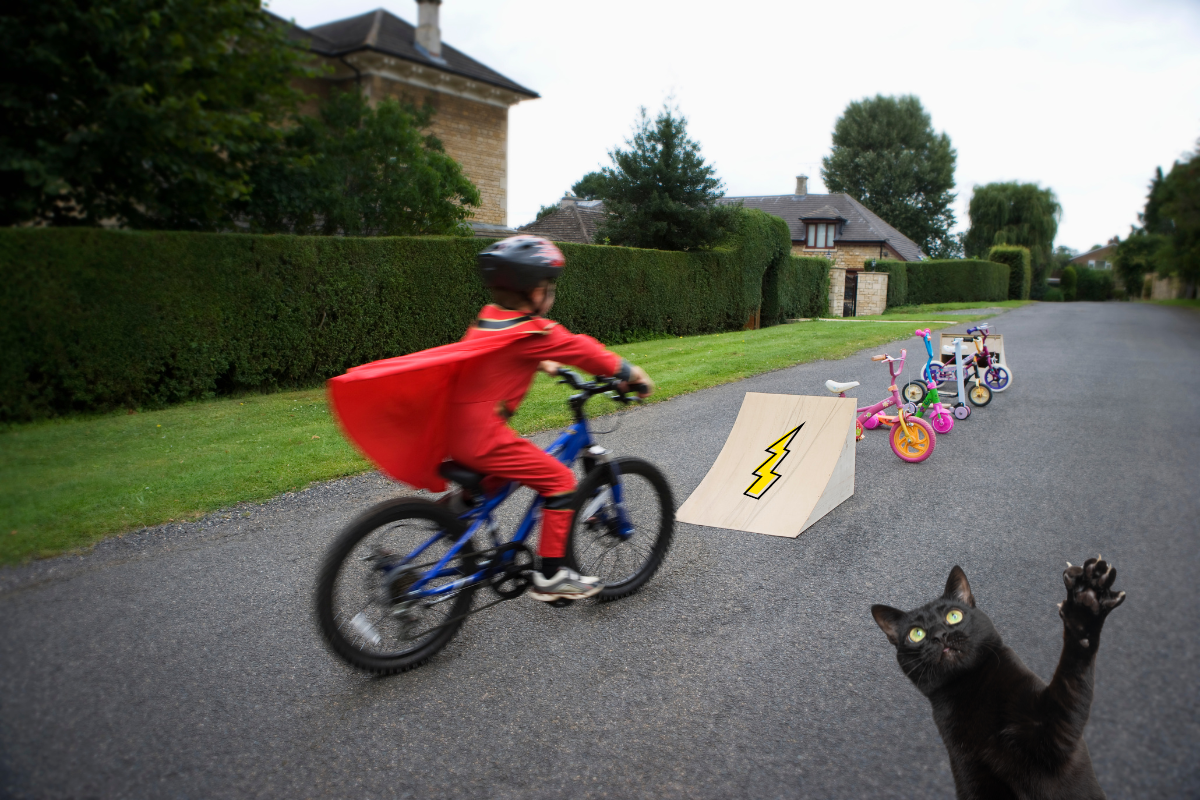Understanding Impulse Control & Emotional Management in Kids and learning effective strategies for supporting and navigating their emotions and behaviours.
Welcome to my blog where we delve into the world of impulse control and emotional management in children. These two skills might sound like complex concepts, but in simple terms, they refer to a child’s ability to think before acting and to manage their feelings appropriately. While these skills may seem small, they play a massive role in a child’s development and daily life.
Imagine a child named Flash, who struggles with impulse control and managing his emotions. Flash’s story is not uncommon. Many children, like Flash, face similar challenges. However, understanding these difficulties and how to support children like Flash is crucial for their well-being and success.
In this blog, I explore the significance of impulse control and emotional management in a child’s life. Understanding your child’s different emotions is vital. I will also discuss practical strategies to help children like Flash navigate their emotions and behaviours more effectively. So, let’s dive in and discover how we can make a positive difference in the lives of children facing these challenges.
The Story of Flash: A Child Struggling with Impulse Control

Meet Flash (not his real name, but rather a name he prefers to call himself), is a lively and imaginative young boy facing significant challenges with impulse control and managing his emotions. Despite his kind heart and good intentions, Flash finds it difficult to navigate certain situations, often leading to conflict and frustration.
Technology Time
One common scenario where Flash’s struggles become evident is when he spends too much time on his iPad. While technology can be engaging and entertaining, Flash has difficulty tearing himself away, even when it’s time for other activities or responsibilities. This tendency to become overly absorbed in activities highlights his struggle with impulse control.
| Excessive screen time can negatively affect a young child’s brain. It can lead to difficulties with attention, impulse control, and emotional regulation and impact cognitive development and social skills. The constant stimulation from screens can overstimulate the brain, making it harder for children to focus on other activities and responsibilities. |
Jealousy
Another instance where Flash’s challenges are apparent is in his relationship with his older brother. Feeling jealous of his brother’s abilities and privileges, Flash becomes easily agitated when he perceives unfair treatment. When his brother fails to respect his belongings, especially his beloved LEGO sets and toys, Flash’s frustration boils over, sometimes resulting in physical altercations that pose a danger to both himself and his brother.
Transitioning Between Tasks
Furthermore, Flash’s difficulty in transitioning between tasks or activities exacerbates his impulsivity. When engrossed in an activity, such as playing with his toys or watching a favourite show, Flash becomes resistant to interruptions. He may argue with his parents when asked to switch tasks or refuse to comply altogether, demonstrating a lack of flexibility and self-regulation.
Denied Desires
Additionally, when faced with disappointment or denied desires, Flash’s emotional response can be intense and challenging to manage. Anger, disobedience, and even physical aggression toward his parents may ensue when he doesn’t get his way, indicating his struggle to regulate his emotions effectively.
Despite these struggles, it’s essential to recognise that Flash possesses a compassionate and considerate nature when he is calm. In moments of tranquillity, he demonstrates empathy and kindness towards others, and animals, highlighting his potential for growth and development in managing his impulses and emotions.
Through understanding and support, it is possible that Flash can learn strategies to enhance his impulse control and emotional management skills, allowing him to thrive and flourish in various aspects of his life.
Understanding Impulse Control and Emotional Regulation

Defining Impulse Control and Emotional Regulation
Impulse control refers to the ability to think before acting, resisting immediate urges or temptations in favour of more thoughtful and deliberate responses. It involves pausing to consider the consequences of one’s actions and making decisions based on long-term goals rather than immediate gratification.
Emotional regulation, on the other hand, involves managing one’s emotions healthily and adaptively. It encompasses the ability to recognise, understand, and express emotions appropriately, as well as the capacity to regulate emotional responses in various situations.
Why Some Children Struggle with These Skills
- Brain Development: The prefrontal cortex, the part of the brain responsible for impulse control and emotional regulation, continues to develop throughout childhood and adolescence. Children may struggle with these skills due to immaturity in this area of the brain, making it challenging for them to regulate their impulses and emotions effectively.
- Environment: The environment in which a child grows up can significantly influence their ability to develop impulse control and emotional regulation skills. Factors such as inconsistent discipline, chaotic family environments, exposure to violence or trauma, and lack of positive role models can hinder a child’s development in these areas.
- Temperament: Every child has a unique temperament, which can impact their propensity for impulsivity and emotional reactivity. Some children may be naturally more impulsive or emotionally sensitive than others, making it harder for them to regulate their behaviour and emotions in certain situations.
- Learning Disabilities or Developmental Disorders: Children with learning disabilities, attention-deficit/hyperactivity disorder (ADHD), autism spectrum disorder (ASD), or other developmental disorders may experience difficulties with impulse control and emotional regulation as a result of underlying cognitive or neurological differences.
- Stress and Adversity: Experiencing chronic stress or adversity, such as family conflict, parental divorce, poverty, neglect, and feelings of jealousy, can disrupt a child’s ability to regulate their emotions and impulses. These challenging circumstances can overwhelm a child’s coping mechanisms and lead to dysregulated behaviour.
By understanding the factors that contribute to difficulties in impulse control and emotional regulation, parents can implement strategies and interventions to support children in developing these essential skills. Through patience, empathy, and consistent guidance, children can learn to navigate their emotions and impulses more effectively, promoting their overall well-being and success.
Two links to assist further understanding:
| Self-Regulation Interventions and Strategies: Book from Amazon on Keeping the Body, Mind & Emotions on Task in Children with Autism, ADHD or Sensory Disorders |
| Child Mind Institute – “Emotional Regulation and Kids: How to Foster Healthy Strategies” |
The Impact on Daily Life

Flash’s struggles with impulse control and emotional regulation have profound effects on various aspects of his daily life, including his activities, interactions with others, and academic performance. Let’s delve into how these challenges manifest in real-life situations:
Activities and Daily Routine:
- Flash’s difficulties with impulse control often disrupt his daily routine. For example, when he becomes engrossed in activities like playing video games or watching TV, he may have trouble transitioning to other tasks such as homework or chores.
- His impulsivity also leads to poor time management, as he may procrastinate on important tasks or neglect responsibilities due to the allure of immediate gratification.
Interactions with Others:
- Flash’s emotional outbursts and lack of impulse control negatively impact his relationships with family members, peers, and authority figures.
- During conflicts with his older brother, Flash’s inability to regulate his emotions results in aggressive behaviour, leading to physical altercations and strained sibling dynamics.
- In social settings, Flash’s impulsivity may cause him to interrupt others, speak out of turn, or engage in socially inappropriate behaviours, making it challenging for him to maintain positive peer relationships.
Academic Performance:
- In the classroom, Flash’s struggles with impulse control and emotional regulation hinder his academic performance. He may have difficulty staying focused during lessons, as his mind wanders or he becomes easily distracted by external stimuli.
- When faced with challenging tasks or academic setbacks, Flash’s emotional responses, such as frustration or defeatism, may impede his ability to persevere and problem-solve effectively.
- Additionally, Flash’s impulsivity may lead to impulsive decision-making during assessments or assignments, resulting in careless errors or incomplete work.
Real-Life Consequences:
- Flash’s poor impulse control and emotional management not only impact his immediate experiences but also have long-term consequences for his development and well-being.
- Strained relationships with family members and peers can lead to feelings of loneliness, isolation, and low self-esteem, affecting Flash’s overall emotional health and social development.
- Academic struggles stemming from impulsivity and emotional dysregulation may result in academic underachievement, leading to feelings of inadequacy and frustration.
- Without appropriate support and intervention, Flash may face an increased risk of behavioural problems, substance abuse, and mental health issues in adolescence and adulthood.
Link for a Recommended Activity Book to purchase for your child
| Emotional Regulation For Kids: 30+ Fun Activities To Build Positive Thinking, Self-Awareness, Social-Emotional Learning, Coping Techniques Through CBT Exercises |
Understanding the pervasive impact of poor impulse control and emotional management on Flash’s daily life underscores the importance of implementing targeted interventions and strategies to support his growth and development. Through proactive intervention and consistent guidance, Flash can learn to navigate his challenges more effectively, paving the way for improved well-being and success in various areas of his life.
Strategies for Supporting Children like Flash

Supporting children like Flash in developing better impulse control and emotional regulation requires a multifaceted approach that incorporates various techniques and interventions. Here are some practical tips and strategies for parents.
- Teach Your Child to Label Feelings:
- Encourage Flash to identify and express his emotions using words. Help him build a vocabulary of emotions so he can articulate how he feels in different situations.
- Play Impulse Control Games:
- Engage Flash in games and activities that require him to practice impulse control, such as Simon Says or Red Light, Green Light. These games help strengthen his ability to pause and think before acting.
- Encourage Physical Activity:
- Encourage Flash to participate in regular physical exercise, such as sports or outdoor play. Physical activity helps reduce stress, improve mood, and enhance self-regulation skills.
- Ask Your Child to Repeat Directions:
- When giving instructions or directions, ask Flash to repeat them back to ensure he understands and remembers what is expected of him. This reinforces listening skills and helps improve comprehension.
- Be a Good Role Model:
- Model positive behaviours and emotional regulation for Flash to emulate. Show him how to manage frustration, cope with disappointment, and communicate effectively in challenging situations.
- Teach Problem-Solving Skills:
- Help Flash develop problem-solving skills by encouraging him to brainstorm solutions to conflicts or challenges he encounters. Guide him through the process of evaluating options and making informed decisions.
- Create a Reward System:
- Establish a reward system to reinforce positive behaviours and progress towards goals related to impulse control and emotional regulation. Offer praise, privileges, or small rewards for demonstrating self-control and managing emotions effectively.
- Establish Household Rules:
- Set clear and consistent rules and expectations for behaviour within the home. Involve Flash in the rule-making process and ensure consequences for breaking the rules are fair and predictable.
- Provide Structure and Be Consistent:
- Maintain a structured daily routine with consistent meal schedules, bedtime, and activities. Consistency helps Flash feel secure and provides a predictable environment for practising self-regulation.
- Read Books with Characters the Child Can Relate to:
- Choose books with characters who face similar challenges to Flash and demonstrate effective ways of managing emotions and impulses. Use these stories as opportunities for discussion and learning.

A wonderful book for kids experiencing Impulse and Management of Emotions called Journey to Self-Control: Exploring Impulse and Emotions with Flash
In addition to these strategies, incorporating mindfulness exercises, behavioural interventions, and creating a supportive environment can further enhance Flash’s ability to regulate his emotions and impulses:
- Mindfulness Exercises: Introduce simple mindfulness exercises, such as deep breathing or guided relaxation, to help Flash become more aware of his thoughts and emotions and learn to respond calmly in stressful situations.
- Behavioural Interventions: Work with a therapist or behavioural specialist to implement targeted interventions, such as cognitive-behavioural therapy (CBT) or social skills training, to address specific challenges Flash faces in impulse control and emotional regulation.
- Creating a Supportive Environment: Foster a supportive and nurturing environment where Flash feels safe to express his feelings and seek help when needed. Encourage open communication, active listening, and empathy within the family and school community.
Valuable link to Help Recognize Emotions, Express Feelings, Developing Self Control and Coping Strategies:
By combining these strategies and techniques, parents can empower children like Flash to develop the skills they need to navigate their emotions and behaviours more effectively, setting them on a path towards greater self-regulation and well-being.
Celebrating Progress and Small Victories

Supporting children like Flash on their journey to develop better impulse control and emotional regulation requires patience, persistence, and celebrating every step forward, no matter how small. Parents must understand that change takes time and that setbacks are a natural part of the process. By recognising and celebrating progress, we can instil confidence and motivation in children like Flash as they work towards their goals.
Imagine Flash, who, with the support of his family and teachers, begins to make strides in managing his impulses and emotions. Each day presents new challenges and opportunities for growth, and although progress may be gradual, it is nonetheless significant.
For instance, Flash learns to pause and take deep breaths when he feels frustrated instead of reacting impulsively. This simple act of self-awareness and self-regulation is a major accomplishment for him. His parents and teachers acknowledge his efforts and praise him for his improved ability to stay calm and composed in challenging situations.
Another milestone for Flash is when he successfully follows through on a task without getting distracted or giving up easily. Whether it’s completing his homework independently or staying focused during a classroom activity, Flash’s determination and perseverance shine through. His parents celebrate his diligence and resilience, reinforcing his belief in his capabilities.
Moreover, as Flash develops stronger emotional intelligence, he becomes more empathetic and considerate towards others. He learns to recognise and validate the feelings of his peers, offering support and encouragement when they need it most. His acts of kindness and empathy are celebrated not only by those around him but also by Flash himself, as he takes pride in his ability to make a positive difference in the lives of others.
These success stories, though seemingly small, are monumental achievements for children like Flash. They represent moments of growth, resilience, and self-discovery, demonstrating the transformative power of patience, persistence, and support. By celebrating each milestone along the way, we reinforce the importance of progress and resilience, empowering children like Flash to continue striving towards their goals with confidence and determination.
Conclusion

Supporting children like Flash in developing impulse control and emotional regulation demands patience, persistence, and celebration of progress. Every small victory signifies growth and resilience. By fostering a nurturing environment and acknowledging each step forward, we empower children to navigate life’s challenges with confidence and determination.

- “What are some signs that my child may have impulse control issues?”
- Signs may include difficulty waiting their turn, acting without considering consequences, and struggling to follow rules.
- “Can video games affect a child’s impulse control?”
- Excessive gaming can impact impulse control by promoting instant gratification and reducing attention span.
- “How can I help my child develop emotional regulation skills at home?”
- Encourage activities like deep breathing exercises, journaling, and discussing emotions openly to foster emotional regulation.
- “Are there any apps or games that can help improve my child’s impulse control?”
- Yes, several apps and games are designed to enhance impulse control through interactive exercises and challenges.
Recent Posts
Explore permissive parenting’s impact on emotional development, its strengths, hidden risks, and how to build loving boundaries that raise resilient children. Every parent wants a peaceful home....
Discover how the Commander Style of authoritarian parenting shapes emotional development, and learn research-based ways to balance firm structure with empathy. Every child’s emotional...

